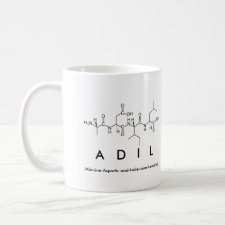
Authors: Uzun L, Say R, Ünal S, Denizli A
Article Title: Hepatitis B surface antibody purification with hepatitis B surface antibody imprinted poly(hydroxyethyl methacrylate-N-methacryloyl-l-tyrosine methyl ester) particles.
Publication date: 2009
Journal: Journal of Chromatography B
Volume: 877
Issue: (3)
Page numbers: 181-188.
DOI: 10.1016/j.jchromb.2008.12.004
Alternative URL: http://www.sciencedirect.com/science/article/B6X0P-4V3SY6R-6/2/8d8e1aa7557c0f0c58c668afa95cad9d
Abstract: Hepatitis B surface antibody imprinted poly(hydroxyethyl methacrylate-N-methacryloyl-l-tyrosine methyl ester) particles were prepared for the purification of hepatitis B surface antibody from human plasma. N-methacryloyl-l-tyrosine methyl ester was chosen as a complexing agent for hepatitis B surface antibodies. Hepatitis B surface antibody imprinted poly(hydroxyethyl methacrylate-N-methacryloyl-l-tyrosine methyl ester) particles were characterized by surface area measurements, swelling test, scanning electron microscopy, elemental analysis, and Fourier transform infrared spectroscopy. Ethylene glycol (1.0áM) was used as desorption agent. Adsorption studies were performed from hepatitis B surface antibody and anti-hepatitis A antibody positive human plasma. Effects of antibody concentration, contact time, N-methacryloyl-l-tyrosine methyl ester content and temperature on the adsorption capacity were investigated. The amount of hepatitis B surface antibody adsorbed per unit mass increased with increasing hepatitis B surface antibody concentration, then reached saturation. Maximum hepatitis B surface antibody adsorption amount was 21.4ámIU/mg. Adsorption process reached the equilibrium in 60ámin. Competitive adsorption of hepatitis B surface antibody, total anti-hepatitis A antibody and total immunoglobulin E was investigated for showing the selectivity. Hepatitis B surface antibody-imprinted particles could adsorb hepatitis B surface antibody 18.3 times more than anti-hepatitis A antibody and 2.2 times more than immunoglobulin E. It can be concluded that hepatitis B surface antibody-imprinted particles have significant selectivity for hepatitis B surface antibody
Template and target information: protein, antibody, Hepatitis B surface antibody
Author keywords: molecular imprinted polymers, Hepatitis B, Affinity beads, affinity purification



Join the Society for Molecular Imprinting

New items RSS feed
Sign-up for e-mail updates:
Choose between receiving an occasional newsletter or more frequent e-mail alerts.
Click here to go to the sign-up page.
Is your name elemental or peptidic? Enter your name and find out by clicking either of the buttons below!
Other products you may like:
 MIPdatabase
MIPdatabase









